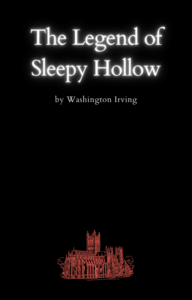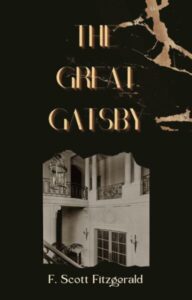Once, when the dengue fever was raging in Calcutta, some portion of our extensive family had to take shelter in Chhatu Babu’s river-side villa. We were among them.
This was my first outing. The bank of the Ganges welcomed me into its lap like a friend of a former birth. There, in front of the servants’ quarters, was a grove of guava trees; and, sitting in the verandah under the shade of these, gazing at the flowing current through the gaps between their trunks, my days would pass. Every morning, as I awoke, I somehow felt the day coming to me like a new gilt-edged letter, with some unheard-of news awaiting me on the opening of the envelope. And, lest I should lose any fragment of it, I would hurry through my toilet to my chair outside. Every day there was the ebb and flow of the tide on the Ganges; the various gait of so many different boats; the shifting of the shadows of the trees from west to east; and, over the fringe of shade-patches of the woods on the opposite bank, the gush of golden life-blood through the pierced breast of the evening sky. Some days would be cloudy from early morning; the opposite woods black; black shadows moving over the river. Then with a rush would come the vociferous rain, blotting out the horizon; the dim line of the other bank taking its leave in tears: the river swelling with suppressed heavings; and the moist wind making free with the foliage of the trees overhead.
I felt that out of the bowels of wall, beam and rafter, I had a new birth into the outside. In making fresh acquaintance with things, the dingy covering of petty habits seemed to drop off the world. I am sure that the sugar-cane molasses, which I had with cold luchis for my breakfast, could not have tasted different from the ambrosia which Indra quaffs in his heaven; for, the immortality is not in the nectar but in the taster, and thus is missed by those who seek it.
Behind the house was a walled-in enclosure with a tank and a flight of steps leading into the water from a bathing platform. On one side of the platform was an immense Jambolan tree, and all round were various fruit trees, growing in thick clusters, in the shade of which the tank nestled in its privacy. The veiled beauty of this retired little inner garden had a wonderful charm for me, so different from the broad expanse of the river-bank in front. It was like the bride of the house, in the seclusion of her midday siesta, resting on a many-coloured quilt of her own embroidering, murmuring low the secrets of her heart. Many a midday hour did I spend alone under that Jambolan tree dreaming of the fearsome kingdom of the Yakshas within the depths of the tank.
I had a great curiosity to see a Bengal village. Its clusters of cottages, its thatched pavilions, its lanes and bathing places, its games and gatherings, its fields and markets, its life as a whole as I saw it in imagination, greatly attracted me. Just such a village was right on the other side of our garden wall, but it was forbidden to us. We had come out, but not into freedom. We had been in a cage, and were now on a perch, but the chain was still there.
One morning two of our elders went out for a stroll into the village. I could not restrain my eagerness any longer, and, slipping out unperceived, followed them for some distance. As I went along the deeply shaded lane, with its close thorny seora hedges, by the side of the tank covered with green water weeds, I rapturously took in picture after picture. I still remember the man with bare body, engaged in a belated toilet on the edge of the tank, cleaning his teeth with the chewed end of a twig. Suddenly my elders became aware of my presence behind them. “Get away, get away, go back at once!” they scolded. They were scandalised. My feet were bare, I had no scarf or upper-robe over my tunic, I was not dressed fit to come out; as if it was my fault! I never owned any socks or superfluous apparel, so not only went back disappointed for that morning, but had no chance of repairing my shortcomings and being allowed to come out any other day. However though the Beyond was thus shut out from behind, in front the Ganges freed me from all bondage, and my mind, whenever it listed, could embark on the boats gaily sailing along, and hie away to lands not named in any geography.
This was forty years ago. Since then I have never set foot again in that champak-shaded villa48 garden. The same old house and the same old trees must still be there, but I know it cannot any longer be the same—for where am I now to get that fresh feeling of wonder which made it what it was?
We returned to our Jorasanko house in town. And my days were as so many mouthfuls offered up to be gulped down into the yawning interior of the Normal School.







